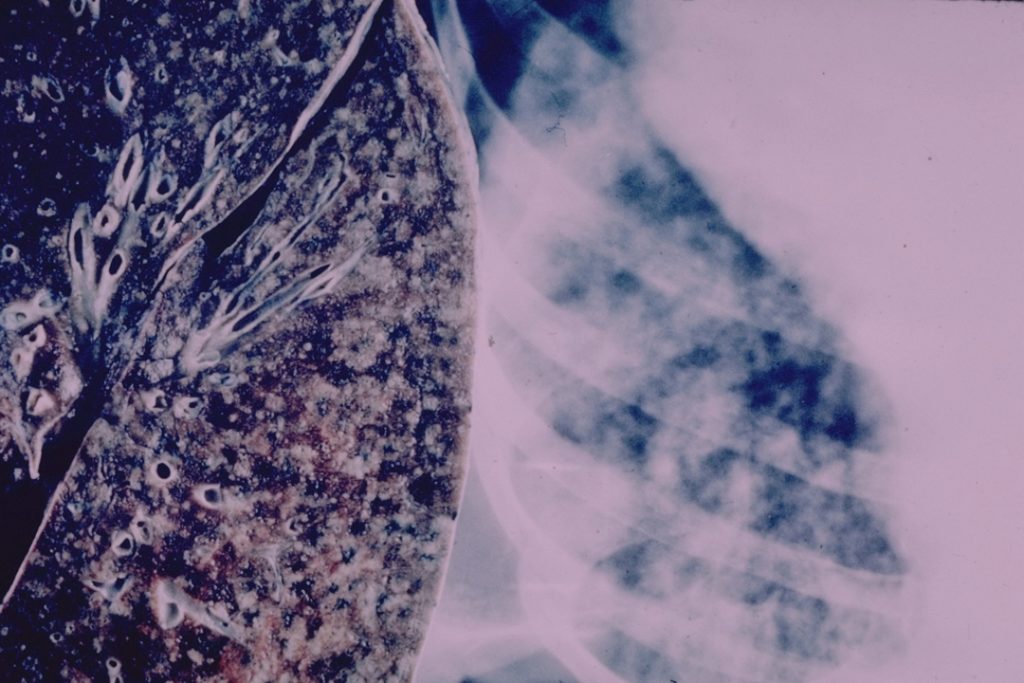
Contents
What is Drug Resistance?
Drug resistance is the reduction in effectiveness of a drug such as an antimicrobial, anthelmintic or an antineoplastic in curing a disease or condition. The term is used in the context of resistance that pathogens or cancers have “acquired”, that is, resistance has evolved. Tolerance is a decrease in response to a drug that is used repeatedly. Multi-drug resistant organisms are bacteria that have become resistant to certain antibiotics, and these antibiotics can no longer be used to control or kill the bacteria. A person with active TB disease has drug-resistant TB if the TB bacteria that the person is infected with, will not respond to, and are resistant to, at least one of the main TB drugs.Drug resistant TB – Causes
There are two ways that people get drug resistant TB.- Resistance to anti-TB drugs can occur when these drugs are misused or mismanaged. This can be for a number of reasons, including when patients do not complete their full course of treatment; when health-care providers prescribe the wrong treatment, the wrong dose, or length of time for taking the drugs; when the supply of drugs is not always available; or when the drugs are of sub-standard.
- Transmitted or primary drug resistant TB results from the direct transmission of drug-resistant TB from one person to another. The occurrence and prevention of primary drug-resistant TB has largely been neglected during the development of global programs to end TB.
- Do not take their TB medicine regularly
- Do not take all of their TB medicine as told by their doctor or nurse
- Develop TB disease again, after having taken TB medicine in the past
- Come from areas of the world where drug-resistant TB is common
- Have spent time with someone known to have drug-resistant TB disease
Types of Drug Resistant TB
- Multidrug-Resistant TB (MDR TB) Multidrug-resistant TB (MDR TB) is caused by TB bacteria that is resistant to at least isoniazid and rifampin, the two most potent TB drugs. These drugs are used to treat all persons with TB disease.
- Extensively Drug-resistant TB (XDR-TB) Extensively drug-resistant TB (XDR-TB) is a rare type of MDR TB that is resistant to isoniazid and rifampin, plus any fluoroquinolone and at least one of three injectable second-line drugs (i.e., amikacin, kanamycin, or capreomycin). Because XDR TB is resistant to the most potent TB drugs, patients are left with treatment options that are much less effective.
Treatment
Treating and curing drug-resistant TB is complicated. Inappropriate management can have life-threatening results. TB experts should be consulted in the treatment of MDR TB and XDR TB.The treatment of drug-resistant TB has always been more difficult than the treatment of drug-susceptible TB. It has required the use of “second line” or reserve drugs that are more costly and cause more side effects. Also, the drugs must be taken for up to two years.
The most common problem faced by many patients was a longer duration of the regimen. And so the search began for shorter regimens for the treatment of drug-resistant TB, that were also easier to take. This led to the development of the Bangladesh regimen which appears to have much higher cure rates and the drugs only need to be taken for eight or nine months. Bedaquiline became available in India In February 2016 it was announced that bedaquiline is to be made available in India. The drug will be available as part of second-line treatment for patients suffering from MDR-TB and XDR-TB. The drug recently underwent clinical trials at the national level in certain hospitals for safety and efficacy. There is more about the treatment of drug resistant TB in India.
Prevention
The most important way to prevent the spread of drug-resistant TB is to take all TB drugs exactly as prescribed by the health care provider. No doses should be missed and treatment should not be stopped early. People receiving treatment for TB disease should tell their healthcare provider if they are having trouble taking the drugs.Health care providers can help prevent drug-resistant TB by quickly diagnosing cases, following recommended treatment guidelines, monitoring patients’ response to treatment, and making sure therapy is completed.
Another way to prevent getting drug-resistant TB is to avoid exposure to known drug-resistant TB patients in closed or crowded places.
Numbers
Globally in 2015 the World Health Organisation (WHO) estimated that 3.9% of new cases and 21% of previously treated cases of TB were of MDR/RR-TB.There were an estimated 250,000 deaths from MDR/RR-TB in 2015. More than half of these patients were in India, China and the Russian Federation. Govt launches new medicine to treat drug resistant TB More about drug resistant TB in India